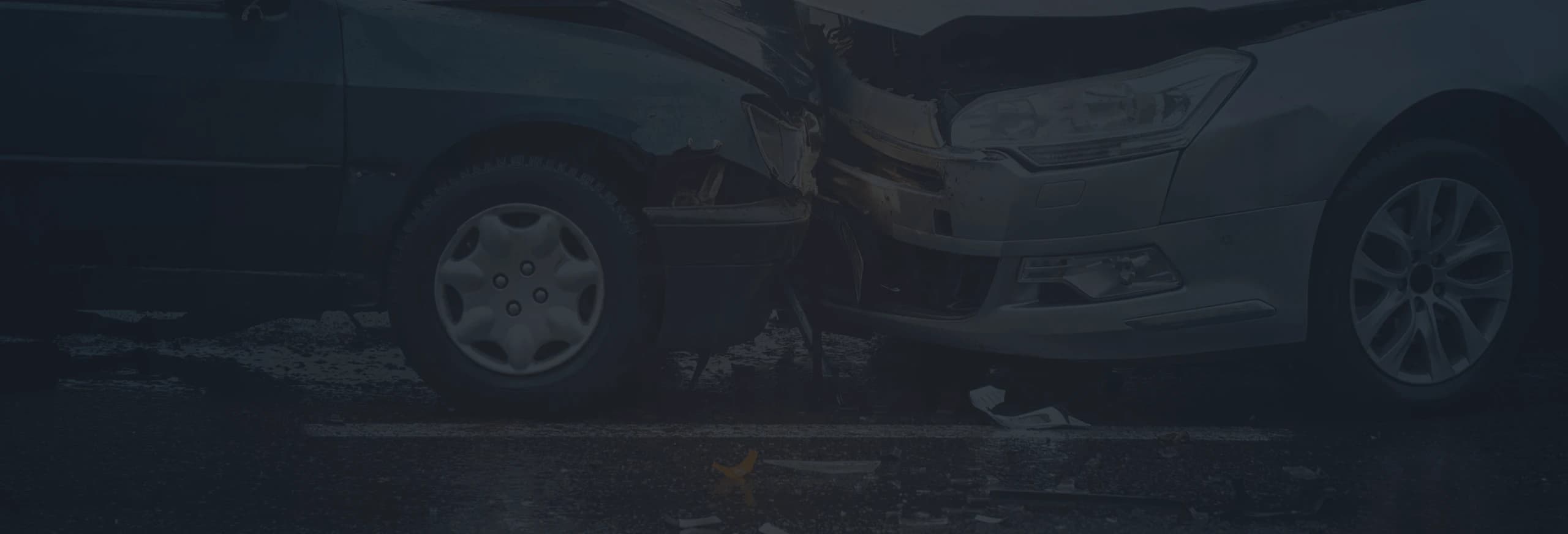
Product Liability Lawyer in Scottsdale

From small household appliances to high-tech electronics and vehicles, we rely on products daily to function safely and effectively. Yet manufacturing flaws, design defects, or inadequate warnings can turn even trusted items into serious hazards. If you or a loved one has been harmed by a defective product, you may have grounds to seek compensation.
Below, learn the essentials of product liability claims, how lawyers investigate potential defects, and why professional counsel often proves crucial. This overview offers a starting point for understanding your rights. For personalized advice regarding your claim, consider contacting an attorney experienced in product liability cases.
Understanding Product Liability
Product liability law holds manufacturers, distributors, and retailers responsible when their products harm consumers due to defects or inadequate instructions. In Arizona, these cases typically involve one or more of the following:
- Design Defect: A fundamental flaw in the product’s planning stage that makes it inherently unsafe, even before production begins.
- Manufacturing Defect: Errors arising during assembly or fabrication that result in a dangerous product, deviating from the intended design.
- Failure to Warn: Insufficient instructions or warnings about known risks, leaving users unaware of potential hazards.
A product may appear routine but contain hidden dangers due to substandard materials, rushed production, or overlooked safety measures. Victims dealing with physical injuries, emotional distress, or hefty medical bills can explore a product liability claim against those responsible for introducing the faulty item into the marketplace.
For a free legal consultation with a Personal Injury lawyer serving Scottsdale, call (844) 343-9609
Common Types of Defective Products
Virtually any item can be defective under the right circumstances, but some categories see more frequent claims than others:
- Automotive Parts
Faulty brakes, tires prone to blowouts, or airbags that fail to deploy can cause crashes and severe injuries. - Pharmaceuticals and Medical Devices
Unintended side effects, improper labeling, or design flaws in implants and prosthetics can jeopardize patient health. - Household Appliances
Fires, electric shocks, or carbon monoxide leaks often result from manufacturing or design oversights. - Children’s Toys and Equipment
Small parts that present choking hazards, toxic materials, or unstable structures pose grave risks to young users. - Industrial or Power Tools
Inadequate safeguards, flimsy construction, or mislabeled usage instructions leave users vulnerable to accidents.
According to the Consumer Product Safety Commission (CPSC), thousands of dangerous items are recalled each year for flaws that can cause injury or death. Even with recalls, consumers might not become aware of the hazards until a serious incident occurs, highlighting the importance of pursuing liability claims to hold manufacturers accountable.
Personal Injury Lawyer Near Me (844) 343-9609
Establishing Liability in a Defective Product Case
Securing compensation in a product liability claim typically requires proving that:
- You Used the Product as Intended
You followed normal usage instructions and didn’t misuse the item in an unforeseeable way. - The Product Was Defective
The defect can arise from its design, manufacturing stage, or lack of proper warnings. - The Defect Caused Your Injuries
It must be clear that your injuries directly resulted from the product’s unsafe nature rather than some unrelated factor. - You Suffered Damages
Physical harm, financial costs, emotional turmoil, or a combination of these losses must be present.
Evidence might include product packaging, receipts, expert reports on engineering or toxicology, and any recall notices. Your lawyer can also seek internal documents from the manufacturer if there’s suspicion they were aware of the issue yet failed to take corrective action.
Click to contact our personal injury lawyers today
The Significance of Warnings and Instructions
When a product could pose foreseeable risks, manufacturers are expected to provide clear, visible warnings or instructions that enable safe operation. Overlooking this responsibility can form the basis of a “failure to warn” claim. Examples include:
- Missing or vague hazard labels on cleaning chemicals
- Complex assembly manuals for power tools without step-by-step safety guidelines
- Omitted disclaimers about potential side effects in medication packaging
Failing to adequately alert users to inherent dangers or proper usage can prompt liability if injuries occur, even when the product’s design and manufacturing remain otherwise sound.
Complete a Free Case Evaluation form now
Potential Damages in Product Liability Lawsuits
Injuries from defective products can range from minor abrasions to life-threatening conditions. Depending on the severity and the specifics of your case, you might recover various types of compensation:
- Medical Expenses
Covering emergency treatment, surgeries, rehabilitation, or long-term care for disabling injuries. - Lost Wages
Reimbursing you for time off work and addressing future earning limitations if the injury permanently hinders employment. - Pain and Suffering
Recognizing physical discomfort, emotional distress, or diminished quality of life tied to your injuries. - Property Damage
Addressing damage to personal belongings or housing structures if the faulty product caused a fire or explosion. - Punitive Damages
In cases of egregious corporate misconduct, courts may award additional damages to punish the defendant and deter similar behavior.
Accurately valuing each category can be complex, especially when dealing with ongoing medical treatments or psychological trauma. By compiling comprehensive documentation—including medical files, receipts, and expert statements—you bolster your argument for fair compensation.
The Role of a Product Liability Lawyer in Scottsdale
Teaming up with an attorney well-versed in product liability law can streamline the process of securing reparation. Their responsibilities generally include:
- Investigating the Defect
- Consulting engineers, scientists, or product design experts who assess the item’s safety and pinpoint how failures led to injury.
- Gathering Vital Evidence
- Reviewing recall notices, production records, and any correspondence suggesting the manufacturer knew about risks.
- Checking usage warnings and instructions for sufficiency.
- Establishing Liability
- Determining whether blame lies primarily with the manufacturer, distributor, or another entity in the supply chain.
- Negotiating with Insurers
- Presenting clear arguments to insurance representatives, emphasizing the defect’s role in causing harm.
- Rejecting lowball offers and advocating for a settlement that addresses both immediate and future losses.
- Pursuing Litigation If Necessary
- Preparing for trial, coordinating witness testimonies, and presenting evidence before a judge or jury if negotiation fails.
This diligence is critical, as large corporations and their insurers may attempt to minimize payouts or deny wrongdoing. An attorney’s familiarity with technical complexities and procedural requirements helps level the playing field, enabling victims to focus on recovery.
Helpful References for Product Safety
- Consumer Product Safety Commission (CPSC) – Tracks product recalls, safety alerts, and regulations
- U.S. Food and Drug Administration (FDA) – Oversees medication, medical devices, and certain consumer goods
- National Highway Traffic Safety Administration (NHTSA) – Monitors automotive defects, issues recalls, and promotes vehicle safety
These authoritative sources regularly update consumers on new recalls and safety initiatives, offering insight into whether a product is under scrutiny.
Safeguarding Your Rights After a Defective Product Injury
Prompt action can strongly influence the outcome of a product liability case. If you’ve been injured:
- Seek Immediate Medical Care
A thorough evaluation documents your condition and provides a baseline for your claim. - Retain All Evidence
Keep the product (if it’s safe to do so) along with original packaging, receipts, and manuals. Photographs of injuries and the item can be crucial. - Record All Expenses
From medical bills to work absences, track every cost incurred. This helps illustrate your financial and personal losses. - Report and Research
Check if any recalls or similar complaints exist, possibly suggesting a known defect. - Consult with Legal Counsel
Understanding your rights and responsibilities early on prevents missteps and ensures you meet any filing deadlines.
Following these steps prepares you for meaningful discussions with a product liability attorney, providing them with a clearer picture of your potential claim.
Frequently Asked Questions
Do I need to prove the manufacturer was negligent to succeed in a product liability case?
Some product liability claims in Arizona can proceed under “strict liability,” meaning you don’t necessarily prove negligence—only that the product was defective and that defect caused your injuries. Still, demonstrating aspects like manufacturing errors or design flaws often strengthens your case.
What if I used the product differently than the instructions stated?
Misuse can complicate a claim, but if the misuse was reasonably foreseeable to the manufacturer, you may still pursue compensation. An attorney can help show that the product should have been designed or labeled to address potential user behavior.
Is there a time limit to file a product liability claim in Arizona?
Yes. You must file within a specified period (the statute of limitations), or you risk losing your right to seek damages. Consulting with an attorney soon after discovering the defect or injury helps ensure you don’t miss critical deadlines.
If a defective product has caused you pain, expense, and worry, you don’t need to face the aftermath alone. By enlisting a lawyer with experience in product liability, you can better understand your options, gather persuasive evidence, and advocate for a resolution that acknowledges the true impact of your injuries. Your priority is recovery, and legal support can provide the clarity and protection you deserve throughout this challenging process.
For a free consultation, call (844) 343-9609
Get an agent on the line in seconds
Responsive
Legal Assistance
Our personal injury attorneys advocate for the funds necessary to cover bills, secure medical treatment, recoup lost wages, and provide compensation for your pain and suffering.
Are you facing unfair treatment from the insurance company?
Do you know the value of your case?
Is the insurance company asserting that the accident is your responsibility?

We'll get back to you ASAP.
Get Your Free Consultation
You Pay Nothing Unless We Recover Compensation For You
